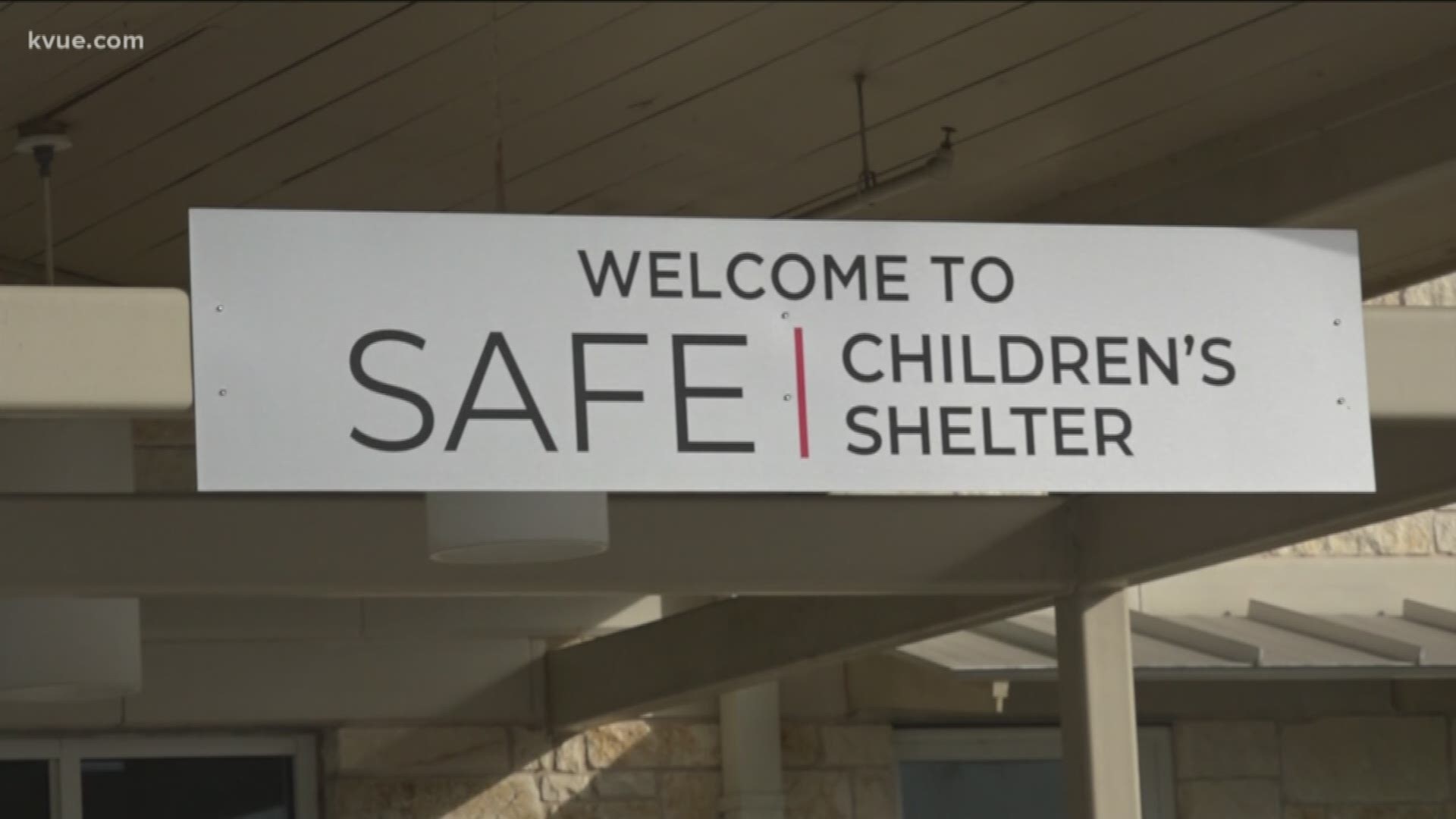AUSTIN, Texas — April is National Child Abuse Awareness and Prevention Month. In the fiscal year 2018, there were 2,128 confirmed victims of child abuse or neglect in Travis County, according to the Texas Department of Family and Protective Services. There 684 confirmed cases in Williamson County.
While those numbers are high, they could be even higher, as there are thousands of other unconfirmed or ongoing cases. At the local level, there are multiple organizations and agencies working to prevent child abuse every single day, and one of which is the SAFE Alliance.
The SAFE Alliance works to prevent child abuse, as well as domestic violence, human trafficking, dating violence, sexual harassment and to provide resources for survivors.
To commemorate Child Abuse Awareness and Prevention Month, blue pinwheels (the national symbol of childhood abuse prevention) can be seen lined up in front of the SAFE Alliance Children's Center. Inside, Liz Garbutt, Senior Director of the SAFE Family Support and Advocacy Division, works alongside her team to curb the numbers of child abuse in Central Texas.
"Abuse can happen to anyone and it happens, and that trauma that children experience is lifelong," Garbutt said. "As adults we're all mandated in Texas to report to the Texas Department of Family and Protective Services, if we suspect abuse, we're all mandated to report so that we can keep the kids in our community safe."
RELATED:
Garbutt explained some signs that a child is suffering from abuse or neglect include:
- Any major change in behavior
- A child is anxious or nervous more frequently
- A child has become passive or withdrawn
- The child is becoming disruptive or aggressive
- The child is frequently absent from school or tardy often
Learning how to talk with your children about these signs should they notice them in their classmates is also important, as well as encouraging that child to talk about it and find help immediately.
"Starting conversations with your children at a young age, talking about safety and boundaries is really important and having comfortable conversations about the difficult topic will make your children more comfortable bringing the issue to you if they notice something with their friends," Garbutt said. "Encouraging your child, depending on the age, to talk to their friend-possible-victim to self-report and talk to someone they trust such as a teacher, counselor, minister perhaps, someone they trust so they can share the information, even accompanying that person to see the counselor or the teacher to share the information."
Through the SAFE Alliance's Strong Start Program, parent-educators go into the homes of at-risk youth or of families who are feeling overwhelmed in the parenting process. The program provides the families exercises, strategies and resources to help them all become healthier and stronger as a family unit.
"We all know that when you come into this world as a parent, you get a child, you don't get a manual that tells you what to do, so you're always looking for any kind of support and what better way to do it than to have that through home visitations where someone can come into your home and see exactly what you're struggling with and say 'I can help you with this,'" said Joanna Argueta, a bilingual parent-educator for the SAFE Alliance.
RELATED:
"If there's been any abuse in the past, that trauma definitely trickles into the way that the parent, and so it also trickles into the way a child behaves," Argueta said. "So all those factors can really affect the way the family functions. In order to be able to provide the information that the family needs to better support themselves and make better decisions for themselves and their children, the better it is for us, and you really start to see some change that helps that they've maybe never received before, whether in their own language because that can be a barrier for a lot of families, or it could be that they've never been introduced to this type of information before. It's just a way of life that they've known and now that they know something new and something that they can do for themselves."
Parent-educators spend about 13 to 16 weeks with each family. The program in total serves about 1,500 individuals (made up of children and adults), and all the services are free to the families.
Families interested in receiving help through the Strong Start program can fill out a self-referral form. That form can be viewed here.
The SAFE Alliance also has a 24-hour SAFE hotline to report abuse or violence. You can call 512-267-7233 (SAFE) or text 737-888-7233.
PEOPLE ARE ALSO READING:

